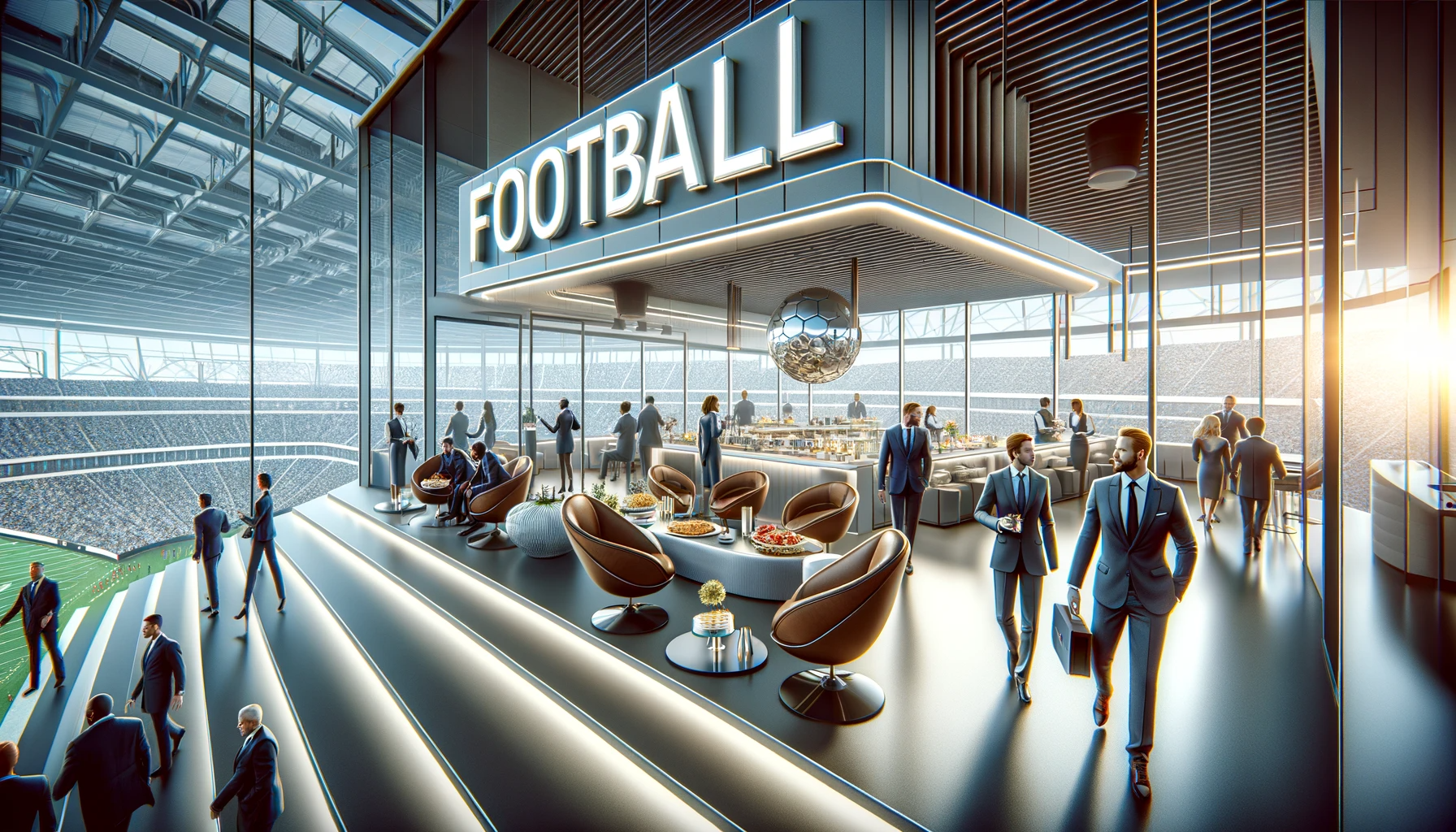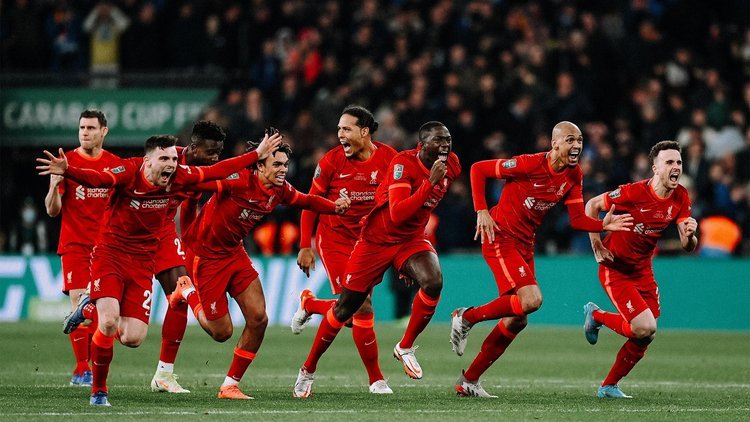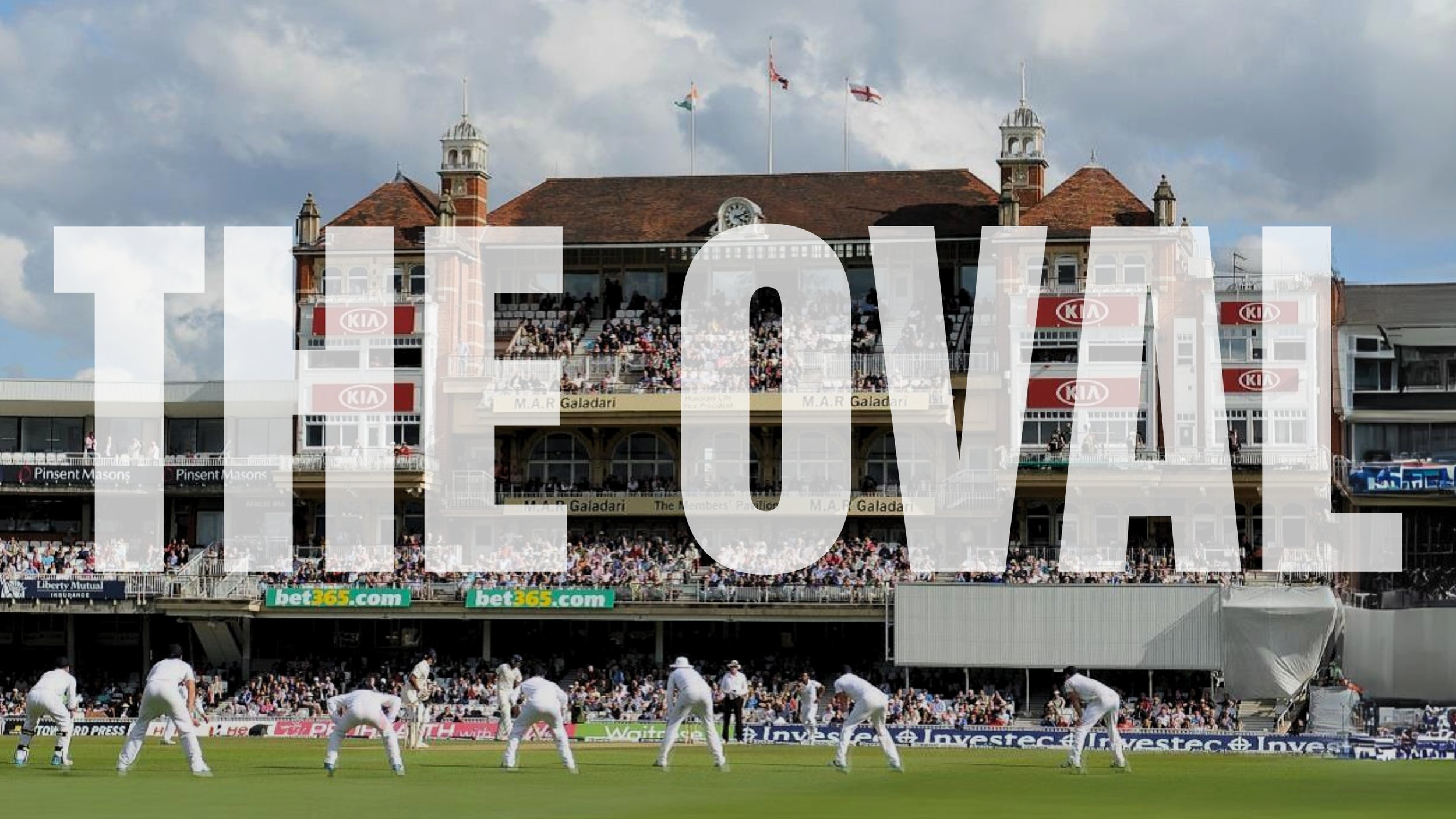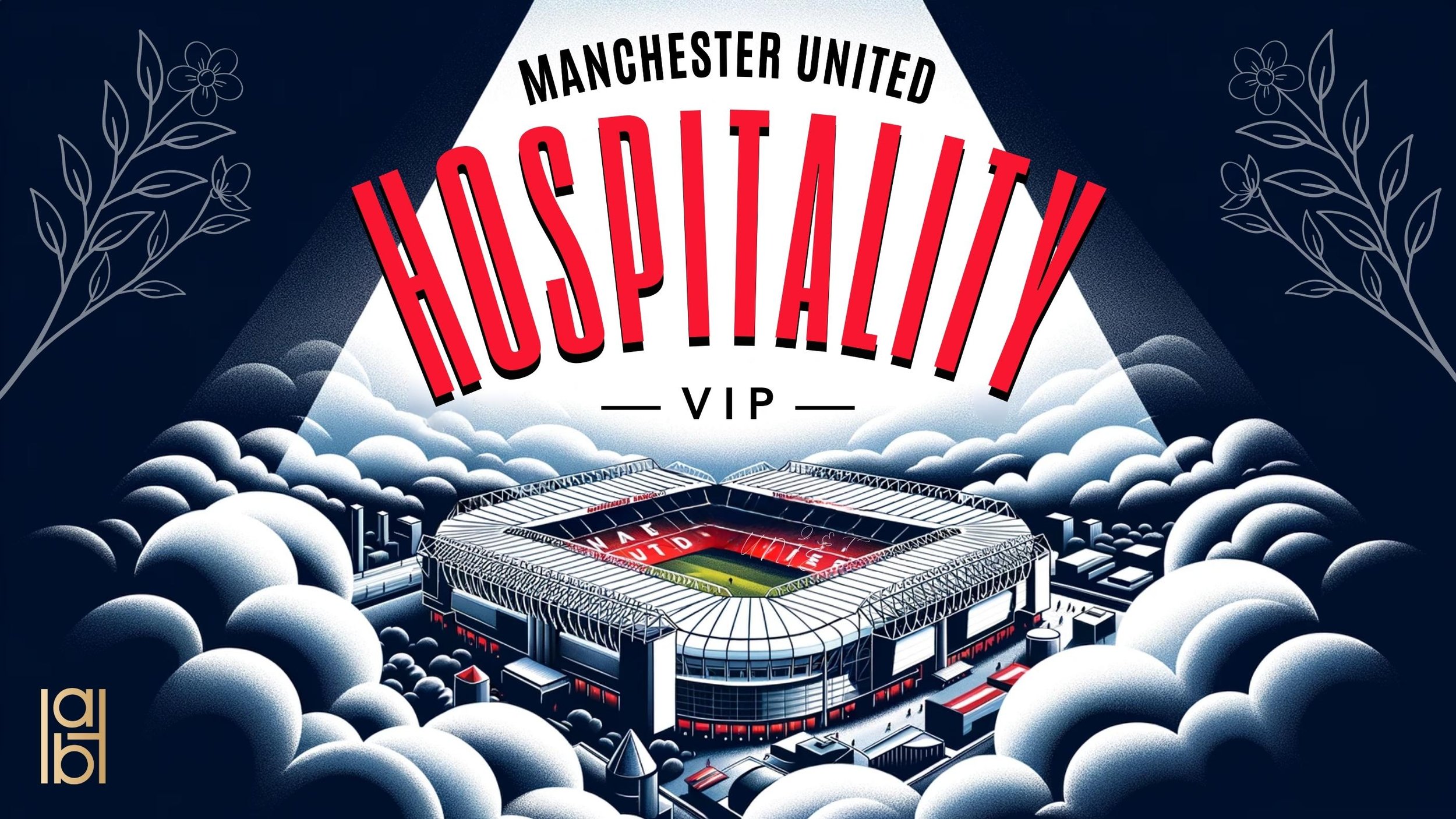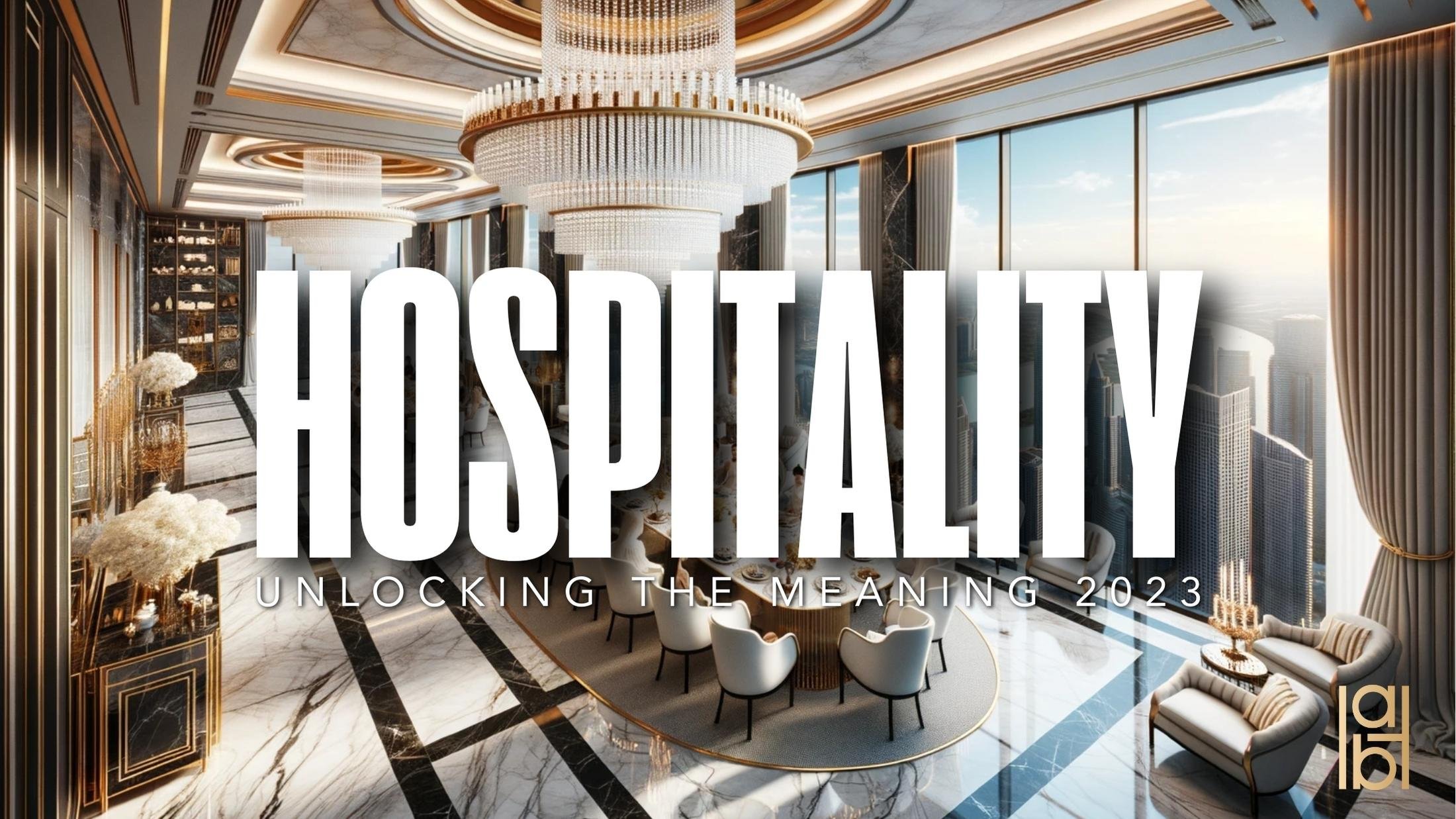Join the excitement of the Canadian Grand Prix at Circuit Gilles Villeneuve in Montreal, a highlight of the Formula 1 calendar.
Football Hospitality (VIP Packages & Tickets)
The World’s Game. This is the best the world has to offer.
In this article we will explore some of the best Hospitality Packages for those looking to elevate their football experiences.
Manchester City Premier League Hospitality – Etihad Stadium
TUNNEL CLUB
ABOUT THE PACKAGE
Located on the ground floor, this is modern hospitality at its most remarkable, with contemporary food, drink and exclusive behind-the-scenes access to the heart of Manchester City.
Situated on the upper level of The Tunnel Club, you’ll enjoy stunning panoramic views of the pitch from the stylish surroundings inside the suite. The experience begins with the anticipation of the players’ arrival.
WHAT’S INCLUDED
Pre-match entertainment: When the team and manager enter the suite, you and your guests will greet them as they make their way to the changing room.
Immersive hospitality: Look forward to the match with live interviews from special guests from the world of football, music and TV whilst enjoying beautifully prepared contemporary cuisine in a stylish, informal setting with an complimentary bar consisting of beer, wine, and soft drinks.
Match seats: Watch the match from Executive padded seating along the half-way line.
TUNNEL CLUB PREMIER
ABOUT THE PACKAGE
Immerse yourself into the centre of the action of a Manchester City game with the Tunnel Club Premier experience.
WHAT’S INCLUDED
Immersive entertainment: The intensity of the game will be felt in every detail, as you listen to Performance Analysts and watch players approach their positions before walking out onto stadium field. You’ll feel like an official team member – sitting behind home dugouts with heated seats for optimal comfort!
Full hospitality: Throughout the day you will enjoy free-flowing Champagne, house wine, beer, and soft drinks. After the match, head back to the Club Suite and enjoy an exclusive interview with some of the best players, whilst sampling fine wines with amazing five-course fine dining.
Manchester United Premier League Hospitality – Old Trafford
EVOLUTION SUITE
ABOUT THE PACKAGE
The Evolution Suite offers magnificent panoramic views of the pitch, and offers the best match-day hospitality experience at Old Trafford.
WHAT’S INCLUDED
Match seats: Enjoy fantastic views of the match from VIP Executive padded seats. All guests will receive a complimentary match-day program, team sheet, and souvenir.
Full hospitality: Starting with a Champagne & canapés reception, your hospitality will include a complimentary bar of beer, wine, and spirits, as well as a three-course à la carte meal.
At full time, return to enjoy a selection of hot meat pies and savouries.
Chelsea Premier League Hospitality – Stamford Bridge
MUSEUM
ABOUT THE PACKAGE
The award-winning stadium tour and museum experience allows guests to walk in the footsteps of Chelsea legends before going on to enjoy match-day hospitality.
WHAT’S INCLUDED
Museum experience: Enjoy savoury refreshments on arrival before a pre-match mini tour behind the scenes.
Full hospitality: After the tour you and your guests will be treated to an interactive Chef’s table and a complimentary bar including beer, wine and soft drinks. A Chelsea legend will also be in appearance.
Match seats: Watch the match from luxury padded seats located in the upper tier of West Stand, towards the goal line.
TAMBLING SUITE
ABOUT THE PACKAGE:
Named after Chelsea FC’s legendary striker Bobby Tambling, the Tambling Suite offers a relaxed informal setting along with excellent seating in the middle tier of West Stand.
WHAT’S INCLUDED:
Match seats: Watch the game from luxury padded seats in the middle tier of West Stand, near the goal line.
Full hospitality: Take delight in pre-match two-course fine dining with a complimentary bar including beer, wine, spirits and soft drinks.
At half-time, enjoy delicious savoury snacks served to your seats.
After the match, return to the suite to savour a handcrafted British cheese station.
West Ham United Premier League Hospitality – London Stadium
GREAT BRITON
ABOUT THE PACKAGE:
From a light bite through to a hearty meal, the Great Briton’s chef stations offer a range of fresh, flexible food options and prime seats parallel to the pitch.
WHAT’S INCLUDED:
Match seats: Watch the Hammers from VIP padded match seats in the upper tier of West Stand.
Full hospitality: Enjoy access to the Great Briton Bar, with options to purchase food & drink. Whilst in the Great Briton Bar, experience a Hammers legend appearance.
Arsenal Premier League Hospitality – Emirates Stadium
THE FOUNDRY
ABOUT THE PACKAGE:
The Foundry is a celebration of Arsenal’s origins, set amongst the contemporary grandeur of Emirates Stadium. The result is a perfect balance of classic flair and modern elegance that creates a sumptuous environment for intimate dining.
The Foundry’s restaurants contrast modern furniture, lighting and finishes with the hand-crafted traditions of Arsenal’s original era, represented by rich timber panelling and deep-buttoned leather upholstered booths.
WHAT’S INCLUDED:
Enjoy on-site hospitality in The Foundry facility, which offers Champagne on arrival, complementary wine, beer and soft drinks, a four course buffet dining experience across two intimate spaces.
Liverpool Premier League Hospitality – Anfield
PAISLEY AND SHANKS HOSPITALITY SUITE / LOUNGE HOSPITALITY
ABOUT THE PACKAGE:
Guests get to enjoy access to Liverpool’s premier club hospitality suite which is the perfect mix of first-class matchday hospitality with match-day passion and excitement. Celebrate Liverpool from the comfort and luxury of the Paisley + Shanks suite which is named after Liverpool’s most celebrated and famous managers, Bill Shankly and Bob Paisley.
From the suite, you can enjoy a delicious buffet meal before making your way to your seats. These seats provide spectacular views of the whole stadium so you will never miss a second of the action.
WHAT’S INCLUDED:
Enjoy on-site hospitality in the Paisley + Shanks suite, which offers tea and coffee, drinks, a complimentary match day programme and more.
BEAT LOUNGE HOSPITALITY:
ABOUT THE PACKAGE:
Also located within Liverpool FC is the Anfield Beat Lounge, this lively sports bar is located in the main stand, where guests can celebrate their passion for the club from the best seats in the house. Guests are invited to enjoy their complimentary hot food dishes and complimentary drinks before the action begins at kick-off.
WHAT’S INCLUDED:
Additional package inclusions consist of pre-match entertainment, in-lounge betting facilities, direct access to your seats from the Lounge and more.
UEFA Europa League Deluxe Experience
Step into the world of European football with the UEFA Europa League, presenting football hospitality that is as intense as the on-pitch action. From pitch-side access at iconic football stadiums to fine dining options, the UEFA Europa League offers hospitality packages that promise to take your match-day to another level.
Ultimate UEFA Champions League Hospitality
Get ready to witness football magic with the UEFA Champions League’s official football hospitality. This isn’t just about watching top clubs; it’s about embracing football in a luxurious setting. Every moment, from a champagne reception to the best seats, is crafted to offer the ultimate fan an unforgettable football hospitality experience.
The Premier Football VIP Packages
In the grand tapestry of football, football hospitality tickets aren’t just a gateway; they’re your exclusive pass to moments that stay etched in memory. Whether soaking in the electric atmosphere at Old Trafford, enjoying Arsenal hospitality at Emirates Stadium, or being a part of the biggest games of the season at the Etihad Stadium or Tottenham Hotspur Stadium, there’s a reason they’re termed ‘VIP’. Embrace the beautiful game with official hospitality experiences, be it the FA Cup, the Emirates FA Cup, or even the League Cup.
Indulge in iconic grounds such as Stamford Bridge and entertain corporate guests with Manchester United hospitality packages, ensuring your match day is more than just about the game. As the football season unfolds, don’t just be a spectator; immerse yourself with football hospitality packages designed for true enthusiasts.
Conclusion: Football at Its Finest
Official football hospitality is more than just a ticket—it’s a deep dive into luxury and a testament to one’s passion for the sport. From witnessing exhilarating plays during the Europa League at Emirates Stadium to experiencing the allure of match days at Tottenham Hotspur, every element is curated for the aficionado in you. Whether it’s the thrill of the FA Cup or the resonance of a Man City match at the iconic Etihad Stadium, choose football hospitality that redefines the game.
Experience a season like never before; whether it’s the electric ambiance of Old Trafford or the fine dining experiences at iconic venues. It’s more than football—it’s about moments, connections, and a celebration of the beautiful game in all its glory. Choose to live the football dream this season with the finest hospitality on offer.
Football Packages with Above + Beyond
Above + Beyond Luxury Experiences
Formula 1 Packages with Above + Beyond
Cricket Packages with Above + Beyond
Relevant Links to Learn More
-
https://aboveandbeyond.group/blog/liverpool-hospitality-packages
-
https://aboveandbeyond.group/blog/manchester-united-hospitality-packages
-
https://aboveandbeyond.group/blog/arsenal-hospitality-packages-the-emirates
-
https://aboveandbeyond.group/blog/london-stadium-hospitality-packages
-
https://aboveandbeyond.group/blog/best-footballers-in-the-world
Manchester United Hospitality (Best Packages 2023/24)
As the curtain rises on the 2023/24 football season, Manchester United remains not just a pinnacle of football excellence, but also of premium matchday experiences.
Their hospitality packages are renowned worldwide, offering fans an unparalleled blend of luxury, comfort, and adrenaline.
Dive into this guide to discover the best Manchester United hospitality packages for the 2023/24 season, where the thrill of the match meets the height of luxury.
Manchester United
The Red Devils, as they’re affectionately known, are no strangers to being at the zenith of the football world. Their illustrious history at the Old Trafford stadium is a testament to the club’s legacy.
The air at Trafford Manchester has always been thick with anticipation, but this season, there’s an added edge.
Over recent years, Manchester has been painted in two distinct shades: red for United and blue for City. Manchester City’s dominance has been evident, but United isn’t a side that rests on its laurels.
Can they take the Crown from Manchester City?
United’s campaign this season is fueled by more than just ambition. With new manager Erik ten Hag at the helm, the strategies are different, and there’s a newfound zest in the players. Ten Hag’s approach differs significantly from his predecessors, combining swift counter-attacks with meticulous build-up play.
This has rekindled hope among Man United fans, who are eager to see their team regain the Premier League crown.
But taking on the champions is no small feat. It requires more than just strategy; it demands passion, resilience, and an undying spirit, all of which Manchester United has showcased in abundance.
Manchester United Hospitality
For fans looking to witness the magic of Manchester United in person, the club offers a unique experience through its Manchester United Hospitality packages.
These packages are tailored to provide an immersive experience, making match days unforgettable.
CONTACT US
United v Liverpool (Northwest Derby)
One of the most anticipated matches in the Premier League calendar is the clash between United and Liverpool.
The Northwest Derby, as it’s popularly known, is more than just a match; it’s a battle for pride. And for those who wish to witness it from the best seats at Old Trafford, the Manchester United Hospitality Tickets are the answer.
Manchester United Hospitality Tickets
While every game at Old Trafford is a spectacle, the Manchester United Hospitality packages elevate the experience.
Fans can opt for the Champions Club package, which offers luxury padded seats, a complimentary bar, and post-match drinks with legends of the club.
For those who crave a more exclusive experience, private boxes with a private outdoor balcony are available. These offer a prime position to view the match, complete with pre-match and post-match hospitality.
VIP tickets ensure fans are treated to an unparalleled experience, with easy access to Old Trafford, complimentary drinks, and the opportunity to mingle with Manchester United legends.
The Evolution Suite, located in the North East Quadrant of Old Trafford, offers a blend of luxury and the electric matchday atmosphere. With an iconic view of the Sir Alex Ferguson Stand and the Sir Bobby Charlton Stand, it’s a must for die-hard fans.
The Red Devils’ quest for the Premier League title is about more than just points and goals; it’s about reclaiming their rightful place at the pinnacle of English football. As Manager Erik Ten Hag and his squad embark on the final whistle of this journey, the world watches with bated breath, waiting to see if Manchester will once again be painted red.
With the combination of on-field prowess and unmatched hospitality off the field, Manchester United is not just a football club; it’s an institution, a legacy, and a way of life for many.
The Best Ticket in Town (Above + Beyond Hospitality)
EVOLUTION SUITE
ABOUT THE PACKAGE
The Evolution Suite offers magnificent panoramic views of the pitch, and offers the best match-day hospitality experience at Old Trafford.
WHAT’S INCLUDED
Match seats: Enjoy fantastic views of the match from VIP Executive padded seats. All guests will receive a complimentary match-day program, team sheet, and souvenir.
Full hospitality: Starting with a Champagne & canapés reception, your hospitality will include a complimentary bar of beer, wine, and spirits, as well as a three-course à la carte meal.
At full time, return to enjoy a selection of hot meat pies and savouries.
Greatest Man United Players of All Time
A tribute to the legends of Old Trafford, this list celebrates the unparalleled talents and contributions of Manchester United’s most iconic players throughout history.
-
Cristiano Ronaldo (2003-2009, 2021-)
Exceptional speed and skill set, Ronaldo has numerous records including most goals in the Champions League and European Championship. He’s had successful stints in England, Spain, and Italy and is regarded as the greatest Manchester United Football player.
-
David Beckham (1993-2003)
Gifted with an exceptional ability to strike dead balls, Beckham had a stellar passing range and made 115 appearances for England. Known for his iconic goal from the halfway line against Wimbledon.
-
Roy Keane (1993-2005)
A midfield enforcer vital to United’s structure. Controversial yet effective, Keane’s aggressive playing style was crucial for breaking up opposition plays.
-
Gary Neville (1992-2011)
One-club man with over 400 appearances for Manchester United. A hard-working right-back known for consistency and leadership. A major part of England’s setup with 85 caps.
-
Rio Ferdinand (2002-2014)
A defender known for his speed, positional sense, and flawless discipline. With over 300 club appearances and 81 caps for England, Ferdinand is celebrated as an all-time great in defence.
-
Paul Scholes (1991-2013)
A complete midfielder with exceptional passing and vision. Scholes won 10 Premier League titles with United and played over 700 matches for the club.
-
Wayne Rooney (2004-2017)
Started with a bang for United and continued to shine, becoming the club’s leading goalscorer. Also the second-highest scorer in the Premier League’s history.
-
Peter Schmeichel (1991-1999)
An iconic goalkeeper known for his imposing presence, remarkable saves, and quick distribution. Played a crucial role in United’s successes during the 90s.
-
Duncan Edwards (1953-1958)
A prodigious talent whose career was tragically cut short at 21. Known for his incredible skills and versatility on the pitch, many regard him as one of the best ever.
-
Denis Law (1962-1973)
With 237 goals in 404 games for United, Law’s incredible goal-scoring prowess earned him the title of ‘The King’.
-
Eric Cantona (1992-1997)
A transformative figure for United in the 90s, Cantona’s presence, skill, and attitude turned the club’s fortunes around, leading to multiple league titles.
-
Bryan Robson (1981-1994)
An extraordinary box-to-box midfielder, Robson’s leadership and commitment set him apart. He served as United’s longest-serving captain.
-
George Best (1963-1974)
Incredible skill, ball control, and flair made Best one of the greatest footballers of all time. His impact on the game remains legendary.
-
Bobby Charlton (1953-1973)
Sir Bobby Charlton is a living legend, not only for Manchester United but for the entire world of football. Born in Ashington, Charlton survived the Munich Air Disaster of 1958, which tragically claimed the lives of many of his teammates.
-
Sir Matt Busby (1945-1969, 1970-1971 as manager)
The foundation of modern-day Manchester United was built by Sir Matt Busby. As the manager, he not only made United a force to be reckoned with in England but also on the European stage. Busby believed in attacking football and always insisted on playing the game “the right way.”
Old Trafford: The Theatre of Dreams
History and Significance
Old Trafford, often referred to as the “Theatre of Dreams,” is not just a stadium; it’s an emblem of Manchester United’s illustrious history. Built in 1910, it has been the home of Manchester United for over a century and has witnessed countless memorable moments.
Key Features and Renovations
Over the years, Old Trafford has undergone numerous renovations to become one of the most iconic football stadiums in the world. With a seating capacity of over 74,000, it’s one of the largest football clubs in the United Kingdom. The Sir Alex Ferguson Stand, named after the legendary manager, and the Munich Tunnel, paying tribute to the Busby Babes, are among its many distinct features.
Notable Matches and Moments
Old Trafford has been the stage for numerous legendary matches in both domestic and European competitions. From last-minute title-winning goals to dramatic European nights, the stadium has seen it all. Fans from around the world flock to Old Trafford to be a part of these magical moments and to feel the aura of this historic ground.
FAQs about Manchester United Hospitality
What does Manchester United hospitality include?
Manchester United hospitality packages typically offer a more luxurious matchday experience. This can include prime seating locations, pre-match and post-match dining options, access to exclusive lounge areas, complimentary drinks, matchday programmes, and sometimes even interactions with past players or club legends.
Is Manchester United hospitality worth it?
The value of Manchester United hospitality largely depends on individual preferences. For fans seeking a more premium experience, with added comforts and amenities, it is definitely worth considering. It offers an enhanced matchday experience that goes beyond just watching the game.
What is the dress code for Manchester United hospitality tickets?
The dress code for Manchester United hospitality usually leans towards smart casual. While club attire like jerseys is often accepted, it’s best to avoid sportswear or trainers. It’s always a good idea to check the specific dress code requirements when purchasing a hospitality ticket.
How much is a hospitality ticket at Old Trafford?
The price of a hospitality ticket at Old Trafford can vary based on the package chosen, the opponent, and the significance of the match. Prices can range widely, so it’s recommended to check Manchester United’s official website or authorized dealers for the most accurate pricing.
Are hospitality tickets good?
Hospitality tickets offer an enhanced matchday experience with better seating, added amenities, and exclusive access to certain areas of the stadium. If you’re looking for a more luxurious and comfortable way to enjoy the match, then hospitality tickets are a great option.
What is the dress code for Old Trafford hospitality?
For Old Trafford’s hospitality sections, a smart casual dress code is generally expected. This can include collared shirts, dresses, and smart shoes. Sportswear, trainers, or overly casual attire might not be suitable for these sections.
Do you have to book the Red Cafe at Old Trafford?
It’s recommended to book the Red Cafe at Old Trafford in advance, especially on matchdays or when there are events, to ensure availability. The cafe can get quite busy, and an advanced booking can help secure a spot.
What do ladies wear to football hospitality?
Ladies attending football hospitality events typically wear smart casual attire. This can include dresses, blouses, smart trousers, or skirts. The key is to strike a balance between comfort for the match and the elevated atmosphere of the hospitality areas.
Can I bring my own food to Old Trafford?
Generally, spectators are not allowed to bring their own food or drink into the stadium for security and commercial reasons. There are plenty of food and beverage options available inside the stadium.
Where is Greenwood now?
As of my last training data in January 2022, Mason Greenwood was a player for Manchester United. However, player transfers and team assignments can change, so it’s recommended to check the latest updates from reliable sports news sources or the official Manchester United website.
Who has more trophies United or Liverpool?
As of January 2022, both Manchester United and Liverpool are two of the most successful clubs in English football. The exact count of trophies can vary based on which competitions you include. It’s best to consult the clubs’ official records or updated sports databases for the most current tally.
What was the old name of Man U?
Before becoming Manchester United in 1902, the club was originally founded as Newton Heath LYR Football Club in 1878.
How many people fit in Old Trafford?
Old Trafford has a seating capacity of over 74,000 spectators, making it one of the largest football stadiums in the United Kingdom.
Where can I buy Manchester United hospitality tickets?
Purchase your Manchester United hospitality tickets directly from the Old Trafford stadium or online, offering the best seats near the halfway line and a view from the iconic Sir Alex Ferguson Stand.
Are there different types of Manchester United hospitality packages?
Yes, the Manchester United hospitality packages range from the exclusive Champions Club to private boxes with a private outdoor balcony. Each offers luxury padded seats, complimentary bar services, including soft drinks, and post-match drinks.
What fixtures are covered under the Manchester United tickets?
Manchester United tickets encompass all home games, including Premier League, Champions League, FA Cup, and the League Cup fixtures.
What’s unique about the Sir Bobby Charlton Stand?
Located at Old Trafford, the Sir Bobby Charlton Stand offers prime position seating with easy access to the Evolution Suite and the North East Quadrant. From here, fans can also view the iconic Stretford End and the Sir Matt Busby statue.
What should I expect from United hospitality at Old Trafford?
United hospitality provides an unparalleled matchday experience, including pre-match and post-match events. There are options like the VIP tickets, granting access to private boxes, with some even having private outdoor balconies. Enjoy a complimentary bar and the chance to meet a Manchester United legend post-match.
Relevant Links to Learn More
-
https://www.eventmasters.co.uk/football-hospitality/manchester-united-hospitality.html
-
https://aboveandbeyond.group/blog/arsenal-hospitality-packages-the-emirates
-
https://aboveandbeyond.group/blog/london-stadium-hospitality-packages
-
https://aboveandbeyond.group/blog/edgbaston-cricket-hospitality
-
https://aboveandbeyond.group/blog/how-corporate-hospitality-can-help-you-secure-clients
Football Packages with Above + Beyond
Unlocking the Meaning of Hospitality in 2023
The hospitality industry has long been a cornerstone of human interaction, creating unforgettable experiences for travelers and fostering connections between cultures.
But what does hospitality truly mean in 2023, and how has it evolved over time? In this blog post, we’ll take a journey through the history and evolution of hospitality, explore the modern industry, and delve into the art of welcoming guests.
We will also examine the role of innovation, the importance of hospitality management, and the exciting future of the industry.
Key Takeaways
-
Hospitality has evolved from a tradition of providing basic needs to travelers, shaped by religious teachings and cultural traditions.
-
The modern hospitality industry is an essential global sector that must embrace innovation and sustainability initiatives in order to stay competitive.
-
Hospitality managers play a key role in ensuring customer satisfaction while the industry must adapt to emerging trends for successful pandemic recovery.
The Evolution of Hospitality
Dating back to ancient times, the concept of hospitality has always been deeply rooted in human society.
The practice involves extending a hospitable welcome to the stranger, providing food, shelter, and security, and it has shaped the way the modern hospitality industry operates today. Hospitality has been an uneven relationship between hosts and visitors since the dawn of civilizations.
It has been facilitated by various forms of exchange across time. This dynamic process has been influenced by various perspectives, such as religious teachings, philosophical thought, and cultural traditions, contributing to the rich tapestry of human history.
With time, hospitality advanced beyond mere acts of kindness or generosity, sometimes even serving as a political instrument for subjugation and manipulation. Currently, the hospitality and tourism sector has become a significant pillar of the global economy, integrating hotels, food and beverage services, and a multitude of other travel and leisure-related facets.
As the industry continues to grow, the concept of hospitality remains at its core, underpinning the relationships between hosts and guests, and fueling the curiosity that drives us to explore and connect with the world around us.
Ancient Cultures
Hospitality was deeply ingrained in ancient cultures such as Ancient Greece, India, and Celtic societies, where providing food, shelter, and safety to guests held great significance.
In Ancient Greece, hospitality was considered a right, with hosts obligated to ensure the needs of their guests were fulfilled.
>
“If it were not for guests, all houses would be graves.”
Hestia, the goddess of hospitality and hearth, was revered, and the adherence to the laws of hospitality, or xenia, determined nobility and social standing in Greek society.
The cultural significance of hospitality in India and Nepal is epitomized in the belief, “Atithi Devo Bhava,” meaning “the guest is God”. Celtic cultures also held hospitality in high regard, providing protection, food, and shelter to guests.
These ancient customs laid the foundation for the hospitality industry as we know it today, highlighting the importance of treating guests with respect, compassion, and generosity, regardless of their background or status.
Religious Perspectives
Religious traditions have also played a significant role in shaping the concept of hospitality. In Christianity, hospitality is considered a virtue, with believers encouraged to show sympathy to strangers and welcome visitors with care and willingness.
Similarly, in Islam, good hospitality holds great importance, even in business settings, with kindness and peace extended to guests and prisoners of war alike.
Judaism places high regard on hospitality, as evidenced by the examples of Abraham and Lot in the Book of Genesis. Hosts are expected to provide sustenance, comfort, and entertainment for their guests, with the Hebrew term “hachnasat orchim” referring to the practice of welcoming guests. The demonstration of hospitality, known as melmasty, extends deep respect to all visitors, regardless of race, religion, or social standing, without any expectation of recompense or favor.
The influence of religious beliefs on hospitality underscores the importance of treating guests with kindness, compassion, and understanding, transcending cultural and societal boundaries.
The Modern Hospitality Industry
Emerging from its roots in mid-1700s Europe, where the concept of hotels first appeared, the modern hospitality industry has significantly evolved. Today, the hospitality and tourism industry spans the globe, encompassing a vast array of sectors, including:
-
Hotels and lodging
-
Food and beverage services
-
Travel and tourism agencies
-
Event planning and management
-
Cruise lines and airlines
-
Theme parks and attractions
-
Casinos and gaming
-
Spa and wellness services
As a multi-billion-dollar industry, hospitality continues to play a crucial role in the global economy, providing countless jobs and opportunities for growth.
Despite confronting numerous challenges like the COVID-19 pandemic, the industry has showcased commendable resilience and adaptability. Driven by innovation and a commitment to customer satisfaction, the modern hospitality industry is constantly evolving to meet the ever-changing demands of travelers and guests from around the world.
Hotels and Lodging
Offering a diverse array of lodging options to cater to travelers’ needs and preferences, the accommodations sector forms an integral part of the hospitality industry.
From luxury hotels and resorts to budget-friendly hostels and bed and breakfasts, the industry caters to a wide variety of tastes and budgets. In addition to providing comfortable accommodations, hospitality managers play a crucial role in ensuring guest satisfaction by overseeing daily operations, guaranteeing that guests’ needs are met, and upholding high-quality standards.
The hotel and lodging industry has also seen significant advancements in technology and sustainability initiatives, with many establishments adopting eco-friendly practices and incorporating innovative solutions to enhance guest experiences.
As the industry continues to grow and adapt to the changing landscape of travel, the importance of meeting guests’ needs and expectations remains at the heart of successful hospitality management.
Food and Beverage Services
Food and beverage services are another integral aspect of the hospitality industry, with restaurants, bars, and cafes providing sustenance and enjoyment for guests and visitors alike.
The food service sector encompasses a diverse range of establishments, including:
-
Fine dining restaurants
-
Casual eateries
-
Bustling bars
-
Cozy coffee shops
-
Rooftop Bars
At the heart of every successful food and beverage establishment is the commitment to providing exceptional service and ensuring customer satisfaction.
Innovation is also prevalent in the food and beverage sector, with chefs and restaurant managers constantly seeking new ways to enhance their offerings and delight their patrons.
From unique culinary creations and sustainable sourcing practices to the utilization of advanced technology and data analytics, the food and beverage industry is continuously evolving and adapting to the ever-changing demands of the modern diner.
The Art of Welcoming Guests
At its core, hospitality embodies the art of making guests feel welcome, at home, and attentively catered to. In the modern context, this involves demonstrating respect for one’s visitors, ensuring their needs are met, and treating them equally.
The way in which hospitality is practiced can differ greatly between cultures and subcultures, with varying expectations for how hosts should extend their hospitality to outsiders, as opposed to personal acquaintances or members of their in-group.
By understanding and embracing these diverse perspectives, hospitality providers can create memorable experiences for their guests, fostering a sense of belonging and connection that transcends cultural barriers.
In an increasingly globalized world, the ability to provide warm and welcoming hospitality to guests from all walks of life is more important than ever, as it contributes to the overall success and reputation of the industry.
Meeting Guest Expectations
Fulfilling guest expectations is a pivotal part of hospitality management, contributing to the building of trust, fostering open communication, and resolving possible conflicts.
By anticipating and fulfilling guests’ needs, hospitality providers can create positive experiences that lead to favorable reviews, repeat patronage, and overall customer satisfaction. Some strategies for meeting guest expectations in the hospitality industry include:
-
Utilizing technology
-
Providing superior service
-
Offering amenities
-
Personalizing the guest experience
-
Ensuring a good quality to price ratio
Communication plays a vital role in fulfilling guest expectations, as it allows hospitality providers to understand their guests’ needs and preferences, adapt their offerings accordingly, and resolve any issues that may arise.
By fostering open and transparent communication, hospitality businesses can build trust with their guests, articulate their needs and expectations, and ultimately ensure that their experiences are enjoyable and memorable.
Cultural Sensitivity
In addition to meeting guest expectations, cultural sensitivity is an essential component of the art of welcoming guests.
Cultural sensitivity involves showing respect and understanding towards the customs, traditions, and needs of guests from different cultural backgrounds, creating a welcoming and inclusive atmosphere that acknowledges and accommodates various perspectives and considerations.
Examples of cultural sensitivity in the hospitality industry include:
-
Recognizing and respecting guests’ customs and traditions
-
Providing culturally appropriate amenities and services
-
Training staff to be knowledgeable about different cultures
By embracing cultural sensitivity, hospitality providers can ensure that their guests feel respected and valued, regardless of their cultural background or personal beliefs, ultimately contributing to the success and reputation of the industry.
The Role of Innovation in Hospitality
With businesses aiming to enhance customer experiences and maintain competitiveness amidst the continually evolving travel and tourism landscape, innovation has gained significant importance in the hospitality industry.
Digital transformation and sustainability initiatives are two of the most crucial areas of innovation in hospitality, as they are helping to shape the future of the industry and drive growth.
The adoption of new technologies, the development of customer-centric business models, and the implementation of eco-friendly practices are just a few examples of how innovation is transforming the hospitality and tourism industry.
As the industry continues to evolve, the ability to embrace innovation and adapt to changing trends and demands will be key to the long-term success of hospitality providers.
Digital Transformation
The impact of technology on the hospitality industry has been immense, revolutionizing the way businesses operate and enhancing guest experiences. Some examples of how technology has transformed the industry include:
-
Online booking platforms, which have made it easier for travelers to plan and book their trips, while also benefiting businesses by improving their visibility and streamlining their operations.
-
Contactless check-in and check-out processes, which have become more widespread and allow guests to have a seamless and efficient arrival and departure experience.
-
Mobile apps for ordering food and services, which provide guests with convenience and allow them to customize their experience.
-
Virtual concierge services, which offer personalized recommendations and assistance to guests, enhancing their stay.
Technological advancements have helped to create more personalized and efficient experiences for guests in the hospitality industry, adapting to their current usage of technology.
The hospitality industry’s embrace of digital transformation has not only improved customer experiences but also provided new opportunities for growth and innovation. As technology continues to evolve and become more integrated into the industry, the potential for further advancements and enhancements in the way hospitality providers serve their guests is virtually limitless.
Sustainability and Eco-Friendly Practices
As the world becomes more environmentally conscious, the importance of incorporating sustainability and eco-friendly practices in the hospitality industry cannot be overstated.
Many establishments are adopting sustainable solutions, such as energy-efficient buildings, waste reduction initiatives, and sustainable sourcing practices, in an effort to reduce their environmental impact and appeal to eco-conscious travelers.
By embracing sustainability and eco-friendly practices, the hospitality industry can demonstrate its commitment to protecting the environment and ensuring the long-term viability of the sector.
As more and more travelers seek out environmentally responsible destinations and accommodations, the adoption of sustainable practices will become increasingly important for the success and reputation of the hospitality industry.
Hospitality Management and Skills Development
The role of hospitality management is pivotal to the industry’s success, as managers are tasked with supervising daily operations, assuring customer satisfaction, and devising strategies for revenue growth.
To excel in this demanding field, hospitality managers must possess a wide range of skills, including communication, problem-solving, time management, leadership, attention to detail, empathy, and customer service.
For those looking to advance their careers in hospitality management, a variety of educational programs and professional development opportunities are available, including online courses, certifications, and degree programs.
These programs can help hospitality managers develop the skills and knowledge necessary to succeed in the industry, ensuring that they are well-equipped to meet the challenges and seize the opportunities that lie ahead.
The Role of Hospitality Managers
The responsibilities of hospitality managers are vast and varied, encompassing everything from overseeing daily operations to ensuring customer satisfaction and maintaining high-quality standards.
To be successful in their roles, hospitality managers must have a deep understanding of the industry, as well as the ability to adapt to changing trends and demands.
Customer satisfaction is of paramount importance for hospitality managers, as it is essential for the success of the business.
By fostering open communication, understanding guests’ needs and preferences, and continuously striving to improve service quality, hospitality managers can create positive experiences that lead to favorable reviews, repeat patronage, and overall customer satisfaction.
Education and Training Opportunities
For those seeking to advance their careers in hospitality management, a variety of educational programs and professional development opportunities are available to help develop essential skills and knowledge in the industry.
Leading university programs, such as EHL Hospitality Business School, University of Nevada – Las Vegas, and SHMS – Swiss Hotel Management School, offer comprehensive hospitality management education, equipping students with the tools they need to excel in the industry.
In addition to traditional degree programs, online courses and professional certifications are also available for hospitality management professionals, providing flexible and accessible options for continued learning and skill development.
As the hospitality industry continues to grow and evolve, the importance of ongoing education and training cannot be overstated, ensuring that hospitality managers are well-prepared to lead their organizations to success in an increasingly competitive landscape.
The Future of Hospitality and Tourism
In the post-pandemic world, the hospitality and tourism industry confronts a myriad of challenges and opportunities as it endeavors to recover and adjust to the evolving travel and tourism landscape. Recovery strategies such as:
-
Restarting domestic tourism
-
Enrolling on metasearch engines
-
Implementing marketing communication and campaign strategies
-
Adhering to social distancing and hygiene requirements
These are all essential to the successful recovery of the industry.
The Future of Hospitality?
In addition to addressing the immediate challenges posed by the pandemic, the hospitality industry must also look to the future and embrace emerging trends and opportunities such as experiential travel, wellness tourism, and the rise of alternative accommodations.
By staying ahead of the curve and adapting to these evolving trends, the hospitality industry can ensure a bright and prosperous future for both businesses and travelers alike.
Pandemic Recovery
The COVID-19 pandemic has had a profound impact on the hospitality industry, with closures of hotels, restaurants, and tourism attractions resulting in a decline in revenue and supply chains.
The effects of the pandemic on travel have been particularly detrimental, with travel restrictions and stay-at-home orders leading to sharp declines in hotel occupancies and revenues.
As the industry looks to recover, businesses must implement innovative solutions and strategies to adapt to the new normal and facilitate growth. Examples of such strategies include:
-
Contactless check-in and check-out processes
-
Mobile apps for ordering food and services
-
Advanced cleaning and sanitization protocols
-
Virtual and hybrid event solutions
-
Flexible cancellation and refund policies
By embracing these changes and focusing on meeting the evolving needs of travelers, the hospitality industry can overcome the challenges posed by the pandemic and chart a course for a successful recovery.
Emerging Trends and Opportunities
Who knows what the Future holds?
As the hospitality industry continues to adapt to the changing landscape of travel and tourism, several emerging trends and opportunities are shaping the future of the sector. Experiential travel, which encourages active engagement with a destination’s culture, people, and experiences, is gaining traction, as it provides travelers with more immersive and authentic experiences.
Wellness tourism, which focuses on promoting health, well-being, and relaxation for travelers, has also seen significant growth in recent years, with an increasing number of tourists seeking destinations and accommodations that offer wellness-focused amenities.
Lastly, the rise of alternative accommodations, such as Airbnb, hostels, and boutique hotels, is providing travelers with unique and personalized experiences, often at a lower cost than traditional hotels.
By staying attuned to these emerging trends and adapting their offerings accordingly, hospitality providers can seize new opportunities and thrive in the ever-evolving world of travel and tourism.
Summary
Throughout history, the concept of hospitality has played a vital role in fostering connections and understanding between cultures.
As the industry continues to evolve in the face of challenges and opportunities, the principles of hospitality remain at its core, driving innovation and growth. From the ancient practices of welcoming guests to the modern hospitality industry, the art of providing warm and memorable experiences for travelers lies at the heart of human connection.
By embracing innovation, cultural sensitivity, and a commitment to customer satisfaction, the hospitality industry can continue to thrive and enrich the lives of countless individuals around the globe.
Frequently Asked Questions
What is the meaning in hospitality?
Hospitality is defined as the generous and friendly treatment of visitors and guests, or the industry in which hotels, caterers, and event planners operate. Additionally, it involves being welcoming and friendly to all guests and visitors.
What does a hospitality job do?
A hospitality job involves serving customers, clearing tables, taking payments, preparing the dining area and communicating with the chef and kitchen team. It can also involve managing a restaurant or hotel, organising conferences, overseeing catering arrangements and working in industries such as tourism, lodging, events, transportation, or food and beverage.
What is a hospitality person?
A hospitality person is someone who offers generous and friendly treatment of guests and customers in a job setting.
What is the historical origin of hospitality?
Hospitality has a long history, with its roots in ancient cultures that extended welcome to strangers by providing food, shelter, and security.
How has the COVID-19 pandemic impacted the hospitality industry?
The COVID-19 pandemic has had a devastating impact on the hospitality industry, leading to widespread closures of hotels, restaurants and tourism attractions and a resulting decline in revenue and supply chains.
Relevant Links to Learn More
-
https://aboveandbeyond.group/blog/arsenal-hospitality-packages-the-emirates
-
https://aboveandbeyond.group/blog/abu-dhabi-grand-prix-hospitality-packages
-
https://aboveandbeyond.group/blog/london-stadium-hospitality-packages
-
https://aboveandbeyond.group/blog/edgbaston-cricket-hospitality
-
https://aboveandbeyond.group/blog/british-grand-prix-hospitality
-
https://aboveandbeyond.group/blog/how-corporate-hospitality-can-help-you-secure-clients
-
https://dictionary.cambridge.org/dictionary/english/hospitality
Above + Beyond Luxury Experiences
Football Packages with Above + Beyond
Formula 1 Packages with Above + Beyond
Cricket Packages with Above + Beyond
Hospitality Meaning (What is the Hospitality Industry?)
In this article we will explore the vibrant world of the hospitality industry with us, where every service and interaction weaves a unique tapestry of memorable experiences for travelers and guests alike.
From cozy hotels to bustling tourism sectors, the essence of hospitality envelops much more than mere accommodations and sightseeing.
Let’s embark on a journey together, uncovering the rich, multifaceted history and layers of an industry that warmly touches lives, cultures, and economies across the globe.
Key Takeaways:
-
Hospitality intertwines warmth and generous service, evolving significantly in the digital age.
-
The Hospitality Industry spans various sectors, prioritizing exceptional experiences and customer satisfaction.
-
Tourism, closely linked with hospitality, facilitates and enhances travel experiences, contributing to global economies.
-
Hospitality Businesses navigate through diverse sectors, ensuring every guest interaction is memorable and satisfactory.
What is the Meaning of Hospitality?
Hospitality, a term often associated with warmth, friendliness, and generous reception, is pivotal in various sectors of the service industry.
It encompasses the act of welcoming and entertaining guests, visitors, or strangers with liberality and goodwill. The meaning of hospitality has evolved, especially in the digital age, where technology plays a crucial role in enhancing customer experience and satisfaction.
It’s not merely about providing a service but doing so in a manner that conveys genuine care, ensuring guests feel valued and cherished throughout their stay or interaction.
What is the Hospitality Industry?
The hospitality industry is a broad and diverse sector that includes businesses that offer services related to accommodation, food, and beverage, and other leisure activities to guests and travelers.
This industry is known for prioritizing customer satisfaction and working towards providing experiences that will encourage repeat business. Hotels, restaurants, and bars are among the most prominent sectors within the hospitality industry, each offering a unique form of service and experience to guests and visitors.
The industry is crucial in the world of travel and tourism, providing essential services to travelers and tourists.
The Hospitality and Tourism Industry
The hospitality and tourism industry are intertwined, each playing a vital role in ensuring travelers have memorable, seamless experiences.
While hospitality focuses on the service provision, including accommodation, food, and beverage, tourism is concerned with facilitating and promoting travel itself. Tourism industry encompasses travel agencies, tour operators, and transportation services, ensuring people can travel to and explore various destinations.
Together, they work hand in hand to ensure that travelers have memorable, seamless experiences, from exploring new venues to enjoying quality lodging and dining.
Tourism Industry
The tourism industry is a dynamic sector that deals with the movement of people to places outside their usual environment and provides services related to travel and stay.
It is a multifaceted industry that encompasses various sectors, including travel, lodging, and entertainment, ensuring travelers can explore, stay, and enjoy different locales around the world. Tourism plays a vital role in the economy, contributing to the GDP of a country and providing employment across various career paths.
It involves promoting destinations, facilitating travel, and ensuring tourists have access to lodging, food, and the entertainment of guests and during their stay, contributing significantly to their overall travel experience.
Hospitality Business
A hospitality business refers to any company or entity that provides services within the hospitality industry, ensuring guests and visitors are provided with services and experiences that meet their needs and expectations.
Businesses in the the hospitality services sector range from hotels and restaurants to event planning and tourism services, each providing a unique form of service and ensuring guests have positive, memorable experiences.
Hospitality businesses prioritize customer service, ensuring all interactions, from initial booking to the provision of services, are conducted in a manner that ensures customer satisfaction and encourages repeat visits. It involves managing various aspects, from front desk interactions and menu items to managing venues and ensuring all guest experiences are positive and memorable.
What is Above + Beyond?
We provide high-end hospitality for all major events across the globe, from Glastonbury Festival to The Grand Prix’s, our experiences are endless.
Above all this, are our clients. We aim to build personal rapports and deliver experiences they will never forget.
Hear what are clients have to say here
FAQs about Hospitality
What is the true meaning of hospitality?
The true meaning of hospitality revolves around the warm, generous, and friendly reception and entertainment of guests, visitors, or strangers. It extends beyond service provision to encompass a genuine kindness and care towards others, ensuring their comfort, satisfaction, and well-being during their stay or interaction.
What is an example of hospitality?
An example of hospitality could be a hotel providing a welcoming environment for its guests, offering not only a place to stay but also additional services like meals, recreational activities, and assistance with exploring the local area, all while maintaining a friendly and accommodating demeanor.
Is waitressing a hospitality?
Yes, waitressing is a part of the hospitality industry. It involves direct interaction with guests, providing them with a service that includes taking orders, serving food and drinks, and ensuring an overall pleasant dining experience, which is a crucial aspect of hospitality.
What is a hospitable person?
A hospitable person is someone who is open, welcoming, and friendly to guests, visitors, or strangers. They go out of their way to ensure the comfort and satisfaction of others, providing a generous and warm reception, and often offering food, drink, and assistance to ensure a pleasant experience.
What Does Hospitality Mean for Hotels in the Digital Age?
In the digital age, hospitality in hotels transcends traditional service, embedding technology to enhance guest experiences from booking to check-out. It involves leveraging digital platforms for reservations, utilizing technology for personalized services, and ensuring a seamless, tech-enhanced stay for guests.
Be prompt, responsive, and specific with feedback
Ensuring timely, specific, and constructive responses to feedback is pivotal in the hospitality industry. It involves addressing both praises and criticisms with equal attention, ensuring improvements are made, and positive and negative feedback is built upon, enhancing overall customer satisfaction and experience.
What Is the Meaning of Hospitality Management?
Hospitality management encompasses overseeing the administrative tasks of a hotel or other travel and leisure organizations. It involves ensuring optimal operation of each department, from service to human resources, providing a top-tier guest experience while maintaining profitability and efficient resource management.
Defining What Hospitality Means and What Hospitality Is?
Hospitality implies providing services that ensure guests feel welcomed, comfortable, and valued. It involves offering a seamless and positive experience, from accommodation and food services to ensuring guests feel attended to and appreciated throughout their stay or visit.
Hospitality vs. Tourism Industry: Meaning?
While both intertwined, the concept of hospitality focuses on providing exceptional experiences and services to guests, while the tourism industry revolves around promoting and facilitating travel itself. Hospitality is a subset of the tourism industry, ensuring travelers have places to stay and dine during their journeys.
Tell customers what you’re going to do, what you are doing, and what you did
Transparent communication is key in hospitality. Informing guests about the processes and actions taken to enhance their stay, addressing feedback, and ensuring a seamless experience is crucial. It involves clear communication before, during, and after their stay, ensuring expectations are set and met.
Travel and Tourism
Travel and tourism encompass facilitating and promoting travel activities. This includes providing information, organizing travel, and ensuring travelers have access to accommodation, dining, and activities that enhance their travel experiences.
Food and Beverage
The food and beverage sector within hospitality ensures guests have access to a variety of dining options and beverages during their stay. It involves providing meals, drinks, and often, an immersive and unique dining experience, contributing significantly to overall guest satisfaction.
20 Ways Event-Focused Hotel Employees Can Elevate Hospitality
Event-focused hotel employees can enhance hospitality by ensuring seamless event execution, providing additional services like technology assistance, personalized packages for event attendees repeat guests, and ensuring all event-specific needs and hiccups are addressed promptly and efficiently.
Hospitality Jobs
Hospitality jobs span various sectors, with industries including food and beverage, accommodation, travel, and tourism, each focusing on providing exceptional guest experiences. Roles may range from front-of-house interactions with guests to behind-the-scenes management of hospitality operations.
For Travelers
For travelers, good hospitality also ensures their journeys are comfortable, enjoyable, and their needs are catered to. It involves providing accommodation, dining, and additional services that enhance their travel experiences, ensuring they are welcomed and valued.
Customer Experience in Hospitality Industry
Customer experience in the hospitality industry involves ensuring all guest interactions and experiences are positive, seamless, and memorable. It involves all aspects of the guest journey, from initial booking to post-stay engagement, ensuring satisfaction and encouraging repeat business.
Trends In Hospitality Industry
Trends in the hospitality industry may include technological advancements, sustainability practices, and evolving guest expectations, which shape how services are provided, ensuring the industry adapts to changing demands and continues to provide exceptional guest experiences.
Accumulate information on frequently asked questions and last-minute hiccups that event planners experience at your venue over time
Compiling data on common queries and issues faced by event planners allows hospitality providers to preemptively address these in future, enhancing the event planning and execution process, and ensuring common pitfalls are avoided or mitigated.
Create a unique, special offer that only event attendees can use
Providing exclusive offers to event attendees not only enhances their experience but also incentivizes participation and can drive additional revenue through upselling or promoting additional services and offerings.
Seek out complimentary local events to recommend to guests
Recommending local events enhances guest experiences by providing additional activities during their stay, for example, ensuring they can make the most of their visit and potentially encouraging extended stays.
Offer the event planner a presentation and technology assistant
Providing technological support for event planners ensures smooth execution of events, mitigating potential issues, and ensuring all technological needs are met, enhancing the overall success and treatment of guests at the event.
Incentivize repeat business by partnering with event hosts to give away special discount codes
Collaborating with event hosts to provide special offers or discounts encourages repeat business, providing value to guests and incentivizing future stays or use of services.
Give away detailed welcome packets for event-goers with information like the event agenda, parking, etc
Providing detailed information for event attendees ensures they can navigate the event seamlessly, enhancing their experience and ensuring they have all necessary information at their fingertips.
Have a couple of hotel staffers on call the day of the event in case the planners need extra hands
Ensuring additional staff are available during events provides a safety net for event planners
Football Packages with Above + Beyond
Relevant Links to Learn More
-
https://aboveandbeyond.group/blog/arsenal-hospitality-packages-the-emirates
-
https://aboveandbeyond.group/blog/abu-dhabi-grand-prix-hospitality-packages
-
https://aboveandbeyond.group/blog/london-stadium-hospitality-packages
-
https://aboveandbeyond.group/blog/the-fat-duck-restaurant-heston-blumenthal
-
https://aboveandbeyond.group/blog/edgbaston-cricket-hospitality
-
https://nationalcareers.service.gov.uk/job-categories/hospitality-and-food
-
https://www.bcu.ac.uk/business-school/blog/the-different-hospitality-sectors-explained
-
https://aboveandbeyond.group/blog/british-grand-prix-hospitality
-
https://aboveandbeyond.group/blog/how-corporate-hospitality-can-help-you-secure-clients
London Stadium Hospitality Packages (2023/24)
Discover unparalleled luxury and excitement with the 2023/24 Hospitality Packages at London Stadium.
Offering exclusive access, premium seating, and exquisite dining options, each package is meticulously designed to provide a unique and unforgettable experience for every West Ham fan and event attendee.
Dive into a world of comfort and style as you cheer on your favorite team or enjoy a stellar event at this iconic venue.
Continue reading



